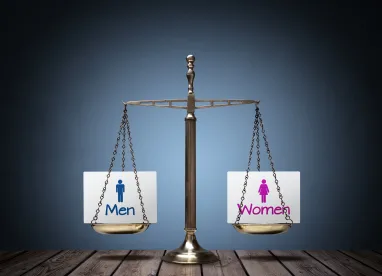Prior salary alone or in combination with other factors cannot justify a wage differential between male and female employees under the Equal Pay Act, the U.S. Court of Appeals for the Ninth Circuit has held in an en banc decision. Rizo v. Yovino, No. 16-15372 (Apr. 9, 2018). This decision overturns the 2017 decision of a three-judge panel of the Ninth Circuit and the Court’s 1982 decision holding that prior salary was a permissible “factor other than sex” under the Equal Pay Act. Kouba v. Allstate Ins. Co., 691 F.3d 873 (9th Cir. 1982).
The Ninth Circuit has jurisdiction over Alaska, Arizona, California, Hawaii, Idaho, Montana, Nevada, Oregon, and Washington.
Background
The Fresno County Office of Education paid the plaintiff, Aileen Rizo, less than comparable male employees for the same work. The County set starting pay based on a pay scale that expressly took into account prior salary.
The Case
Rizo sued for violation of the Equal Pay Act, among other claims. The County defended the Equal Pay Act claim on the basis of the fourth “catch-all” affirmative defense in the Equal Pay Act, which provides, in pertinent part, that wage differentials are permissible if “based on any factor other than sex.” The district court denied summary judgment to the County.
A three-judge panel of the Ninth Circuit reversed, holding that using prior salary to calculate current wages can be permissible under the Equal Pay Act as a “factor other than sex” if the company establishes that the use of prior salary was reasonable and effectuated a business policy.
The en banc court reversed the panel decision, holding that prior salary is not a “factor other than sex” as a matter of law and the County, therefore, had failed to set forth an affirmative defense to the pay discrimination claim.
“Factor Other Than Sex” Affirmative Defense Limited to “Job-Related Factors”
The Ninth Circuit held that the “factor other than sex” affirmative defense is limited to “job-related factors” and that prior salary is not “a legitimate measure of work experience, ability, performance, or any other job-related quality.” The Court explained:
We conclude, unhesitatingly, that “any other factor other than sex” is limited to legitimate, job-related factors such as a prospective employee’s experience, educational background, ability, or prior job performance. It is inconceivable that Congress, in an Act the primary purpose of which was to eliminate long-existing “endemic” sex-based wage disparities, would create an exception for basing new hires’ salaries on these very disparities — disparities that Congress declared are not only related to sex but caused by sex. To accept the County’s argument would be to perpetuate rather than eliminate the pervasive discrimination at which the Act was aimed.
Although the case arose in an initial wage setting, the opinion (in footnote 7) suggests that the logic applies with equal force to promotions and job transfers.
The Court did not address whether past salary may legitimately play a role in the course of individualized salary negotiations. It stated, “We prefer to reserve all questions relating to individualized negotiations for decision in subsequent cases.”
The Court noted (in footnote 16) that the practice of “red-circling” or temporarily maintaining a higher pay rate in a job requiring fewer skills and normally paying less would be “job-related.”
The majority opinion was written by Judge Stephen Reinhardt shortly before his death.
***
The Ninth Circuit decision follows a string of new state and local regulations banning the use of prior salary or salary history in setting pay.




 />i
/>i
